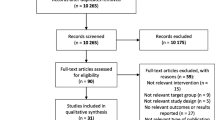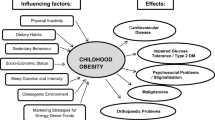Abstract
Aim
The Pro Children consortium consists of the following partners: Knut-Inge Klepp (Coordinator), Department of Nutrition, University of Oslo, Norway; Carmen Perez Rodrigo, Unidad de Nutricion Comunitaria, Bilbao, Spain; Inga Thorsdottir, Unit for Nutrition Research, Landspitali University Hospital, Reykjavik, Iceland; Pernille Due, Department of Social Medicine, University of Copenhagen, Denmark; Maria Daniel Vaz de Almeida, Faculdade de Ciências da Nutrição e Alimentação da Universidade do Porto, Portugal; Ibrahim Elmadfa and Alexandra Wolf, Institute of Nutrition, University of Vienna, Austria; Jóhanna Haraldsdóttir, Research Department of Human Nutrition, Royal Veterinary and Agricultural University, Copenhagen, Denmark; Johannes Brug, Erasmus Medical Center Rotterdam, Department of Public Health, The Netherlands; Michael Sjöström and Agneta Yngve, Unit for Preventive Nutrition, Karolinska Institutet, Stockholm, Sweden; Ilse De Bourdeaudhuij, Department of Movement and Sport Sciences, Ghent University, Belgium.
The Pro Children study is designed to assess vegetable and fruit consumption and determinants of the consumption patterns among European school children and their parents. A second objective is to develop and test strategies for promoting increased consumption of vegetables and fruits among school children and their parents.
Subjects and methods
Surveys of national, representative samples of 11-year-old school children and their parents were conducted in nine countries during October–November 2003, i.e. in Austria, Belgium, Denmark, Iceland, The Netherlands, Norway, Portugal, Spain and Sweden. Comprehensive school-based educational programmes were developed and tested in three settings, i.e. in the Bilbao region, Spain, in Rotterdam, The Netherlands, and in Buskerud county of Norway. A 24-h recall format and frequency items assessing regular intake were used to assess vegetable and fruit consumption. Determinants were assessed employing the theoretical framework of the ASE model (Attitudes, Social Influences and Self-Efficacy), including cognitive factors, normative influences, skills and environmental barriers related to vegetable and fruit consumption. The intervention programmes were tested employing a group-randomized trial design where schools were randomly allocated to an intervention arm and a delayed intervention arm. Surveys among all participating children and their parents were conducted prior to the initiation of the intervention (September 2003; month 0), immediately after the end of the intervention (at month 8) and at the end of the subsequent school year (month 20).
Results
Preliminary data from the project indicate that girls eat vegetables and fruit significantly more often than do boys across all participating countries. There are no sex differences, however, with respect to perceived availability of vegetables and fruit at home and outside the home setting. In all countries, perceived availability appears to be significantly associated with reported frequency of both vegetable and fruit consumption.
Conclusion
Experience so far indicates that the Pro Children Project will succeed in producing valid and reliable research instruments for assessing vegetable and fruit consumption among school children and their parents and that comparable, comprehensive intervention programmes can be implemented across geographic and cultural settings within Europe.

Similar content being viewed by others
References
Ajzen I, Fishbein M (1980) Understanding attitudes and predicting social behavior. Prentice-Hall, New Jersey
Bandura A (1997) Self-efficacy. The exercise of control. Freeman, New York
Bartholomew LK, Parcel GS, Kok G, Gottlieb N (2001) Intervention mapping: a process for designing theory- and evidence-based health education programs. Mayfield, California
Brug J, Oenema A, Campbell M (2003) Past, present, and future of computer-tailored nutrition education. Am J Clin Nutr 77[Suppl 4]:1028S-1034S
Ciliska D, Miles E, O’Brien MA, Turl C, Tomasik HH, Donovan U, Beyers J (2000) Effectiveness of community-based interventions to increase fruit and vegetable consumption. J Nutr Educ 32:341–352
Contento I, Balch GI, Bronner YL, Lytle LA, Maloney SK, Olson CM, Swadener SS (1995) The effectiveness of nutrition education and implications for nutrition education policy, programs, and research: a review of research. J Nutr Educ 27:277–418
De Bourdeaudhuij I, Klepp K-I, Due P, Perez Rodrigo C, de Almeida MDV, Wind M, Krølner R, Sandvik C, Brug J (2004) Reliability of a questionnaire to measure personal, social and environmental correlates of fruit and vegetable intake in 10–11 year old children in 5 European countries. Publ Health Nutr (in press)
French SA, Stables G (2003) Environmental interventions to promote vegetable and fruit consumption among youth in school settings. Prev Med 37:593–610
Haraldsdóttir J, Andersen LF, Thórsdóttir I, de Almeida MDV, Gottlieb A-S, Bjelland M, Hildonen C, Kristjánsdóttir A, Alves E, König J (2003) Fruit and vegetable intake of school children in a pan-European context; a methodological challenge. Poster presented at the 9th European Nutrition Conference in Rome
Kok G, Schaalma H, DeVries H, Parcel GS, Paulussen T (1996) Social psychology and health education. In: Stroebe W, Hewstone M (eds) Eur Rev Soc Psych 7:241-282
Lytle LA, Jacobs DR Jr, Perry CL, Klepp K-I (2002) Achieving physiological change in school-based intervention trials: what makes a preventive intervention successful? Br J Nutr 88:219–221
Pérez-Rodrigo C, Aranceta J (2001) School-based nutrition education: lessons learned and new perspectives. Publ Health Nutr 4181A]:131–13
Acknowledgements
This study is being carried out with financial support from the Commission of the European Communities, specific RTD programme “Quality of Life and Management of Living Resources”, QLK1–2001–00547; Pro Children. It does not necessarily reflect the Commission’s views and in no way anticipates the Commission’s future policy in this area.
Author information
Authors and Affiliations
Corresponding author
Rights and permissions
About this article
Cite this article
Klepp, KI., Rodrigo, C., Thorsdottir, I. et al. Promoting and sustaining health through increased vegetable and fruit consumption among European schoolchildren: The Pro Children Project. J Public Health 13, 97–101 (2005). https://doi.org/10.1007/s10389-004-0095-5
Received:
Accepted:
Published:
Issue Date:
DOI: https://doi.org/10.1007/s10389-004-0095-5




